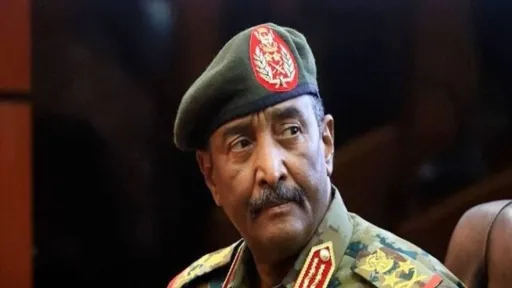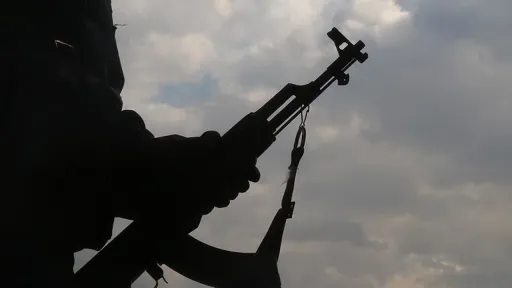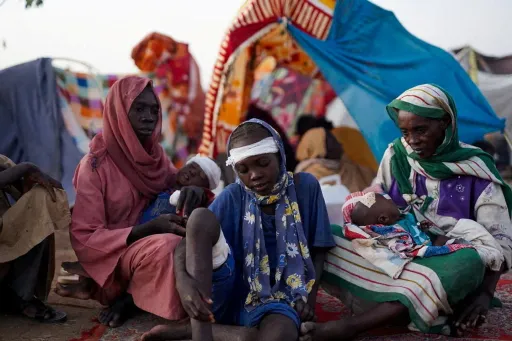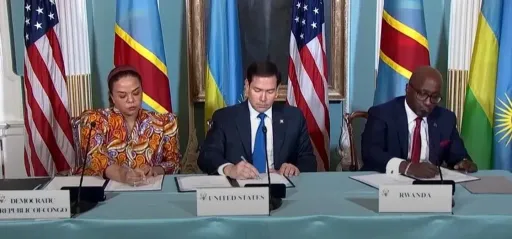As the United Nations General Assembly gathers this week in New York, world leaders debate global priorities. For me, it is also a moment to reflect on fifteen years of service in an organisation that has shaped my life, from my childhood in Cameroon to crises across continents.
Now, as the UN turns 80, I look back not just as a staff member, but as someone whose journey has been profoundly shaped by the institution itself. My path has taken me across borders, through crises and recoveries. But it is the UN, this living institution, that has influenced how I see the world and my place in it. Today, the UN is older, perhaps slower in some parts, bruised by history and weighed down by the expectations of a world in flux. And yet, it is still standing, still trying, still showing up where others will not.
There are voices today that say the UN is failing. That it is bloated, too soft, too slow. That it should shrink, do less, and cost less. And to be honest, these voices are not wrong to want change, as any institution that reaches 80 must pause and reflect. But we must not forget the full picture. Because if we only look at what the UN struggles with today, we risk missing the miracle of what it has already done and continues to do.
To understand why, we need to remember where this organisation has been.
Born out of the rubble
The United Nations was born out of the rubble of the Second World War, with one mission: to save succeeding generations from the scourge of war. When 51 countries signed the UN Charter in San Francisco in 1945, the world was still burying its dead and rebuilding cities from ash. Just a year later, UNICEF was created not for long-term development, but to meet the emergency needs of children in post-war Europe and Asia. By 1950, UNICEF had helped vaccinate over 20 million children against tuberculosis and diphtheria and was feeding nearly 6 million children every day.
In 1948, the Universal Declaration of Human Rights was adopted, with Eleanor Roosevelt at the helm. At a time when racial segregation still existed in many countries and colonialism was law across much of Africa and Asia, this document boldly affirmed the dignity and equality of all people. It was revolutionary.
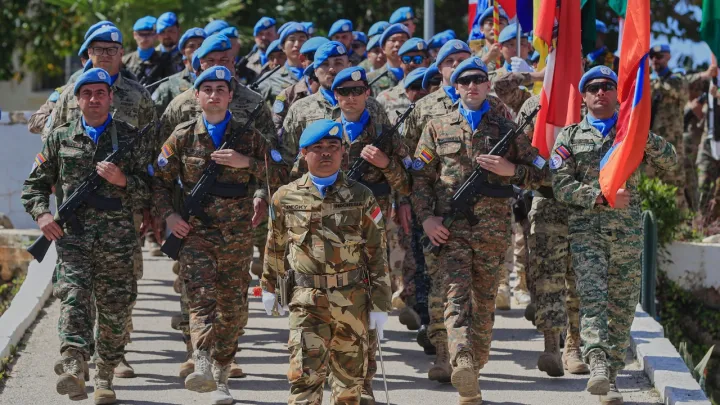
The 1950s and 60s saw decolonisation movements accelerate. Between 1960 and 1980, over 80 countries gained independence, with many receiving the support or political recognition of the UN. Africa alone saw 17 new nations join the UN in 1960, the so-called “Year of Africa.” The UN supervised referendums, trained civil servants, and helped draft new constitutions across newly independent states, including Ghana, Algeria, Gabon, Cameroon, Kenya, Malawi, Zimbabwe, and later Namibia, to name a few.
In 1960, the UN established the Department of Peacekeeping Operations. That same year, it deployed its first major peacekeeping mission to Congo, with over 20,000 troops, the largest and most complex mission at the time. The Congo was in chaos after independence. UN peacekeepers helped stabilise the country, though at a great cost: then-UN Secretary-General Dag Hammarskjöld died in a plane crash while on a mission in 1961.
Health, too, remained central. In 1974, WHO launched the Expanded Programme on Immunisation, which by 1980 had helped immunise over 50 million children against diseases like measles, polio, and tetanus. And of course, the great triumph of smallpox eradication. After two decades of coordination, WHO declared in 1980, the year I was born, that smallpox had been completely wiped out. It had killed over 300 million people in the 20th century alone. The last case was recorded in Somalia, a country that today still benefits from UN humanitarian assistance.
Human development
The UN didn’t just respond to poverty; it redefined how the world understands it. Born in 1965 amid a wave of post-colonial transitions and growing demands for global solidarity, UNDP was established to support countries not with charity, but with tools to build their futures. Then, more than thirty years ago, UNDP introduced a revolutionary idea: Human Development. It challenged the world to stop measuring poverty by income alone and start seeing it for what it is: the denial of opportunity, of education, of health, of dignity. This shift was not cosmetic. It transformed how governments designed policies, how institutions measured progress, and how millions were empowered, not through charity, but by restoring agency. Human development changed not just how we measure poverty, but how we fight it and build a world where everyone counts.
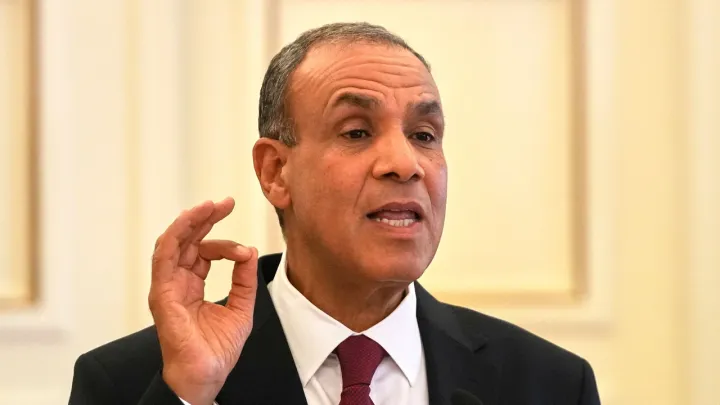
I have seen this impact firsthand. In Vietnam, poverty fell from 58.1 per cent in 1993 to 5.8 per cent in 2020, thanks in part to UN-supported development programmes that empowered communities and improved access to education and healthcare. In Mexico, poverty dropped from 43.2 per cent in 2018 to 36.3 per cent in 2022, lifting five million people out of poverty. In the Lake Chad Basin, UNDP, partners and governments led stabilisation initiatives have helped more than 500,000 refugees and internally displaced people return home, rebuild livelihoods, and regain dignity.
In the 1970s, the UN led ground-breaking work in the fight against hunger. The World Food Programme, created in 1961 as a three-year experiment, had by 1980 become the largest humanitarian food agency in the world, feeding millions during crises like the Biafran War (Nigeria), the Bangladesh Liberation War, and the Sahel droughts.
Survival and service
So, the story of the UN is not only one of recent struggles. It is a story of survival and service, decade after decade, through Cold War tensions, proxy wars, famine, genocide, and economic collapse.
I saw it with my own eyes during the Ebola crisis in West Africa. While fear gripped the world and borders closed, the UN ran toward the danger. We stood with governments, built emergency clinics from the ground up, flew in critical supplies, and walked door to door to educate terrified families. It wasn’t perfect. But it was brave. It was human. Over 11,000 lives were lost, but without that response, the toll could have been far worse. The UN didn’t just show up. It stayed.
Then came COVID-19. Rich countries raced to protect their own. But the UN helped launch COVAX, delivering over 2 billion vaccine doses to 146 countries. That didn’t just save lives, it reminded the world what solidarity looks like, even in a pandemic.
I’ve seen the UN not only respond to war but also prevent it. My own country, Cameroon, stood on the brink of conflict with Nigeria over the Bakassi Peninsula. It was the United Nations, through quiet diplomacy and the work of the Cameroon-Nigeria Mixed Commission, that helped both nations settle their border dispute peacefully, avoiding war and setting an example for conflict resolution in Africa. In places like Sierra Leone, Cambodia, and Liberia, the UN picked up the pieces and helped nations rebuild from the ashes. We disarmed fighters, reintegrated ex-combatants, repatriated refugees, trained judges, supported truth commissions, and helped organise credible elections. In those fragile moments after war, the UN helped countries choose peace and hold onto it.
The UN has paid a heavy price. Nearly 4,400 peacekeepers and over 650 civilian staff have died in the line of duty, including more than 100 in Haiti during the 2010 earthquake and cholera outbreak. Every loss is a reminder that the UN’s work is noble but perilous.
Calls for reform
So, as the United Nations turns 80 this year, it may move with the weight of its years, more cautious, sometimes drowned out by the rising noise of global power struggles. But she still stands. Still shows up in the hardest places. Still offers a space for dialogue when so many are choosing division. I don’t say this because I read it in a report or heard it at a meeting. I say this because I have lived it.
I am one of thousands who have given much of our lives to this work, not for recognition, not for status, but because we still believe in something simple and powerful: that peace is always better than war. That dignity is not a privilege, but a right. That no child should die from a disease we already know how to prevent. That the same sun powering a rural clinic in Ngarannam, Nigeria, can also scorch the earth, dry up lakes, and drive entire communities from their homes in Islamabad. That justice, compassion, and freedom are not distant ideals; they are the bare minimum we owe one another, from Port-au-Prince in Haiti to Ziguinchor in Senegal and from Bamenda in Cameroon to Bogotá in Colombia.
In a time when too many countries are turning inward and retreating into self-interest, the UN remains one of the last spaces where the world tries, however imperfectly, to speak and act together. It doesn’t always succeed. But it still tries.
Reform is necessary, and urgently so. Like many colleagues who serve in this organisation, we welcome that call. We need to do better, to be more agile, more accountable, and closer to the people we serve. But I also know this: if we strip the UN of its voice, its resources and its reach, we won’t just weaken a bureaucracy. We will be tearing down one of the last great acts of global solidarity that humanity has built.
Dag Hammarskjöld once said: “The United Nations was not created to take mankind to heaven, but to save humanity from hell.” That still rings true. The UN was never designed to be perfect. It was meant to be possible, real, human, flawed, yet determined.
Eighty years is long, but not too long to hope. Don’t walk away from the table. Bring your chair. In a world unravelled by conflict, climate, and mistrust, the UN remains a place where the world still tries to hold it together.
The author Njoya Tikum, is the Director of the UNDP Sub-Regional Hub for West and Central Africa and UNDP Resident Representative in Senegal.
Disclaimer: The views expressed by the author do not necessarily reflect the opinions, viewpoints and editorial policies of TRT Afrika.




















